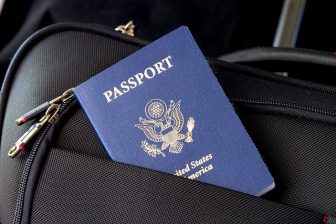 Property firms such as conveyancers and estate agents often rely on their people to complete AML checks, where staff manually verify identity documents.
Property firms such as conveyancers and estate agents often rely on their people to complete AML checks, where staff manually verify identity documents.
But people make mistakes, increasing the risk that they may unknowingly enable fraud and money laundering. A recent ‘Estate Agents of the Future’ report found that 58% of agents still believe that existing processes are ‘prone to human error’.
To avoid lawyers and agents from becoming un-witting professional enablers, staff must be trained effectively, and need the right tools at hand to verify documents.
What is the issue?
Fraud and fake ID documents are on the rise. Criminals will stop at nothing to bypass controls and use many methods to engage in fraud.
These include obtaining fake IDs, changing their name to a property owner’s name, and illegally obtaining genuine documents to open a bank account.
Property lawyers and agents are particularly vulnerable and often most at risk of being targeted. Those working on property transactions that involve an absent landlord, rented properties, deceased owners or a couple who have split acrimoniously must be extra vigilant.
What’s more, new technology means that forgeries are getting more realistic. In the most sophisticated cases, these can be almost impossible to spot manually. And this extends beyond passports and driving licences to bank statements, utility bills, credit reports and payslips.
What are the red flags?
While spotting forgeries is difficult, there are some key points property professionals should look out for. These include secretive clients; those unwilling to meet in person; recently issued IDs; lack of knowledge about the transaction; cash transactions; documents that appear to be tampered with or altered; and a third-party acting on behalf of a seller.
What is the solution?
While individual lawyers and agents can be seen as a firm’s biggest risks, they are also the best line of defence.
Property firms should regularly update staff training on the risks around identifying fraud and the red flags of which they should be aware. It is also worth becoming familiar with government guidance on how to examine ID documents.
Alongside such training, modern digital verification tools can also help reduce the burden on staff when checking and verifying ID documents. Electronic checks usually take minutes to complete, saving property professionals time while reducing the risk of missing a fraudulent document.
Harriet Holmes is AML services manager at Thirdfort.

……meanwhile excusing how on earth the dirty money was allowed to actually establish itself into the banking system in the first place!?!?
You must be logged in to like or dislike this comments.
Click to login
Don't have an account? Click here to register